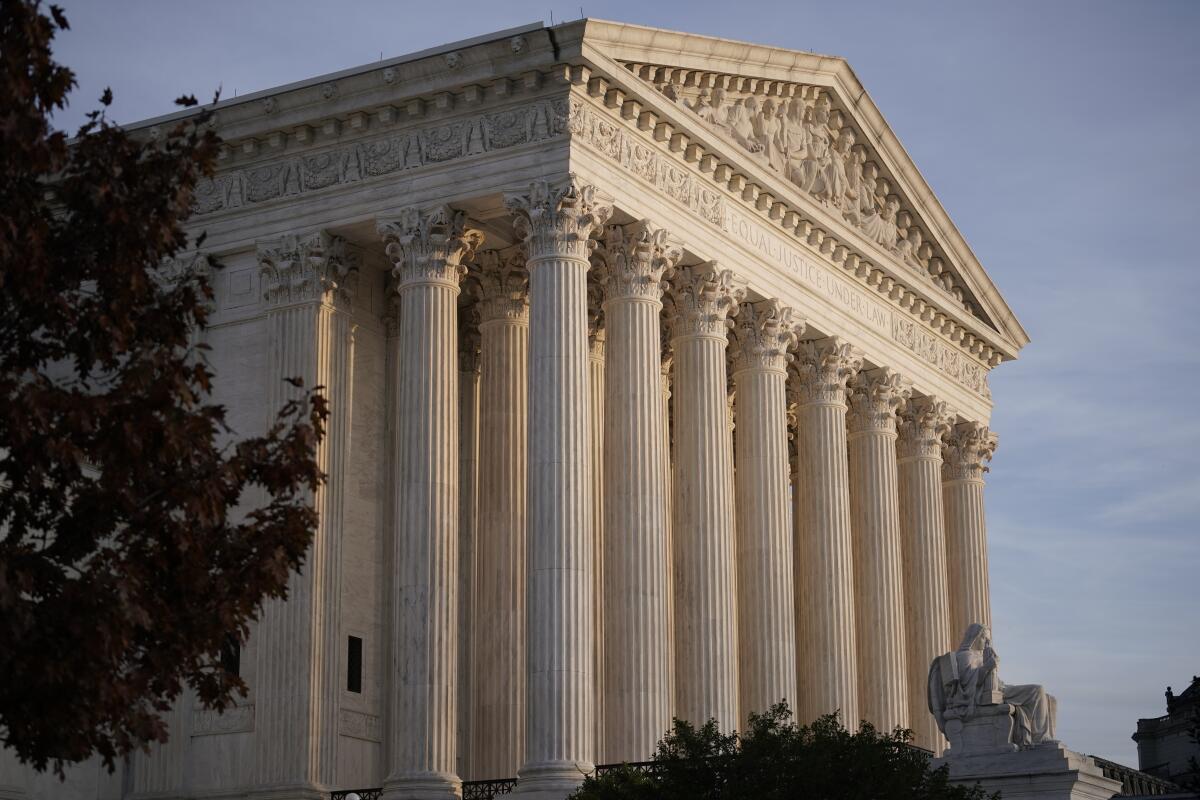Supreme Court justices see ‘exploitation’ of college athletes in NCAA case

- Share via
WASHINGTON — Supreme Court justices said Wednesday they believed student-athletes were being exploited by the multibillion-dollar college sports industry, signaling they are not inclined to block more generous scholarships or other education-related benefits for sports stars.
Lawyers for the NCAA were asking the justices to shield college sports from the antitrust laws that forbid monopolies and price fixing. And they asked the court to overturn rulings by a federal judge in California that allow modest extra education benefits for athletes, such as postgraduate scholarships.
They argued the NCAA feared “perpetual litigation” over college sports, leading eventually to a ruling that would allow schools to pay huge sums to attract the top athletes. Doing so would destroy the 116-year tradition of college sports and its system of competition among amateur athletes, attorney Seth Waxman told the court.
But several of the justices were quick to point out that this system of amateur competition brings in billions of dollars for major universities and many millions for football and basketball coaches. However, the stars of these lucrative sports are left with no payments, other than their scholarships and living expenses.
Justice Clarence Thomas said it was “odd” that the salaries of college coaches have “ballooned,” but that did not destroy the aura of amateur competition between colleges and universities.
Justice Samuel A. Alito Jr. said the case showed “colleges with powerhouse football and basketball programs are really exploiting the students that they recruit.” Most athletes work very hard on their sports, have little time for studies and often do not graduate. “They are recruited, used and cast aside,” he said.
Justice Brett M. Kavanaugh said he, too, was concerned about the “exploitation of athletes.” This looks like a system “where schools are conspiring with their competitors to pay their workers nothing,” he said, likening the situation to a classic antitrust violation in the business world.
A federal judge in Oakland and the U.S. 9th Circuit Court of Appeals in San Francisco ruled the NCAA and major universities were violating antitrust laws. But rather than ordering a free market for college athletes, these judges said universities could offer extra “education-related benefits” to athletes.
Because this ruling against the NCAA was modest and narrow, it should be upheld, said Elizabeth Prelogar, acting U.S. solicitor general representing the Biden administration. The case is NCAA vs. Alston.
More to Read
Get the L.A. Times Politics newsletter
Deeply reported insights into legislation, politics and policy from Sacramento, Washington and beyond. In your inbox three times per week.
You may occasionally receive promotional content from the Los Angeles Times.











